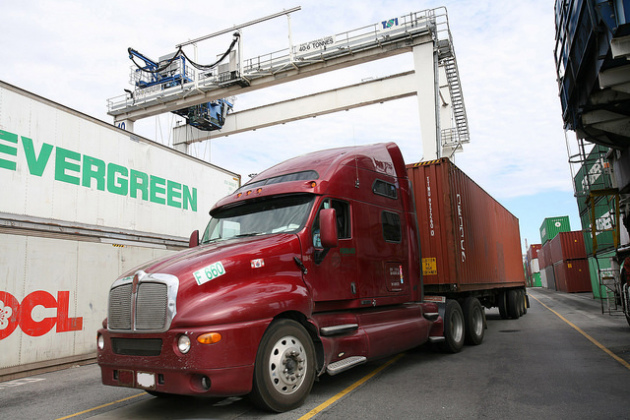Port of Vancouver cargo volumes on steady course despite supply chain, extreme weather woes
Cargo volumes through the Port of Vancouver rose by 1% in 2021 from 145 to 146 million metric tonnes (MMT) over 2020, despite pandemic and global supply challenges and extreme weather events in British Columbia.

In 2021, record container and foreign bulk volumes, as well as strong grain volumes in the first half of 2021, helped maintain cargo volumes through the port, despite a challenging trade landscape and the continued federal deferral of cruise in Canada due to COVID-19, the Vancouver Fraser Port Authority Thursday said in a new release.
“Vancouver’s port community met challenge after challenge in 2021 — sometimes working around the clock — to keep the port connected to national supply chains and goods flowing for Canadians,” said Robin Silvester, president and CEO of the Vancouver Fraser Port Authority.
Following eight consecutive years of record grain volumes and a 2021 mid-year record of grain shipped through the port, 2021 grain volumes dropped by 13% over 2020 after a drought in Western Canada diminished Canadian grain production for the latter half of the year. Port terminals mitigated volume reductions by drawing down and shipping stored grain, ending the year with the second-highest annual grain volume in the port’s history.
Declines were seen in sectors such as fertilizers (down 13%), chemicals (down 19%), lumber (down 14%), wood pulp (down 20%), and processed food products (down 22%), due to a combination of global supply chain challenges and weather events.
Shipping container record
Shipping container quantities moved through the port reached a record 3.7 million TEUs (twenty-foot equivalent units) in 2021, an increase of 6% compared to the previous year.
“The 2021 container story, while a record for the fifth year in a row, is a warning on two fronts: a looming container capacity shortage and the Lower Mainland’s industrial land shortage crisis,” Silvester said.
Container trade through Canada’s west coast has been growing at an average of 5% per year for the last decade. With continued growth, west coast terminals are expected to run out of capacity by the mid-to late-2020s. To meet increased demand for goods shipped in containers, the port authority has been leading the Roberts Bank Terminal 2 Project, a proposed container terminal in Delta, B.C. The project is pending a decision by the federal government before it can proceed.
Challenge
Another challenge highlighted by 2021 container trade statistics was an increase in exports of empty containers. Global market dynamics created a rush to return empty containers to ports in Asia to accommodate strong consumer demand in North America for containerized imports. This created challenges for Canadian exporters, who were unable to access the empty containers that are usually in circulation to move their cargo.
“International demand for Canadian goods remains high, so this is a missed opportunity for Canada for additional exports,” Silvester said.
Silvester commended the Government of Canada for investing $4.1 million, in the wake of B.C. flooding, to help the port authority prepare a parcel of temporarily vacant industrial port lands in Richmond as a short-term empty container storage location.
Have your say
This is a moderated forum. Comments will no longer be published unless they are accompanied by a first and last name and a verifiable email address. (Today's Trucking will not publish or share the email address.) Profane language and content deemed to be libelous, racist, or threatening in nature will not be published under any circumstances.
We need to take the age limit off hyw tractors at the Port for the next 4 years. We need to set a min rates of $25.00 / hr plus overtime after 10 hours / day plus better parking for trucks with 30% with 20 Amp plugs owner or lease ops need to have a min rate of $60/ hr plus fuel with a min of 90% going to lease ops plus a plan to provide medical if sick or injured. If this was to happen we should be able to reduce the backup of containers along with ports open 21 hours / day.